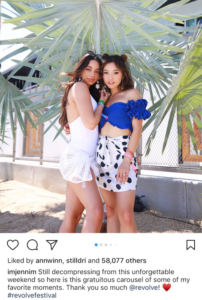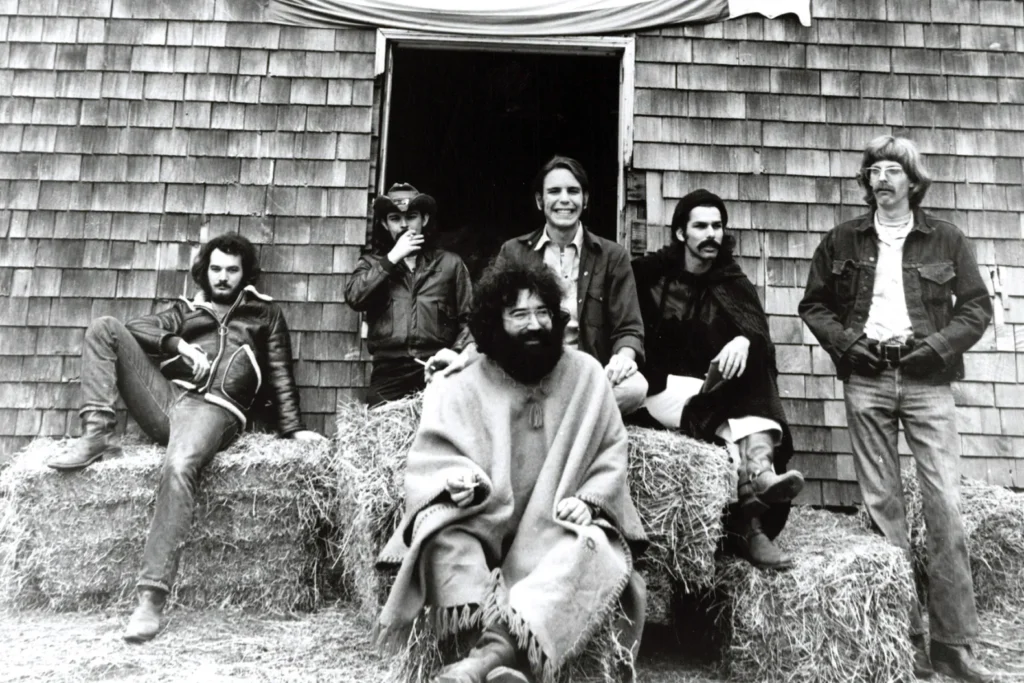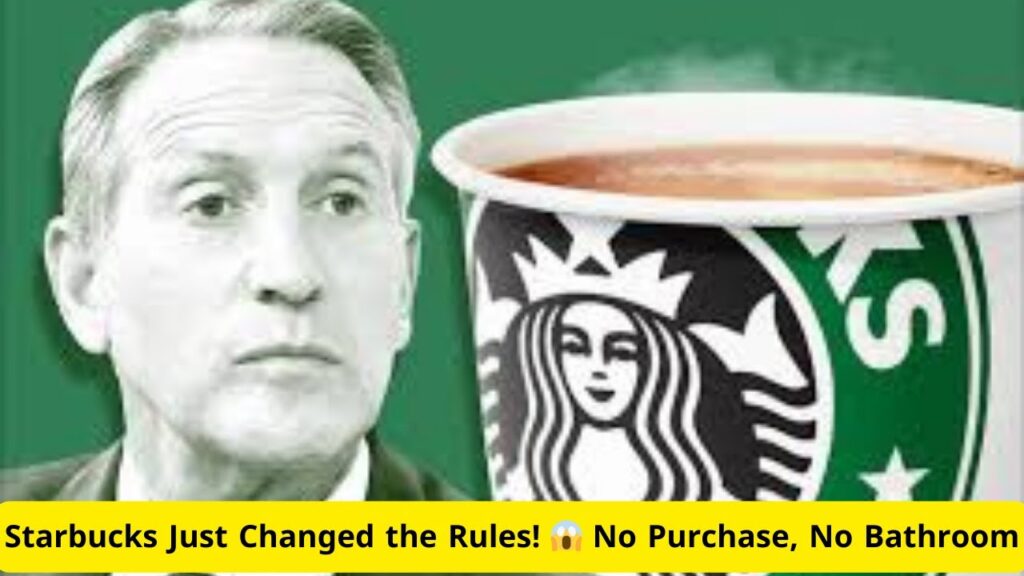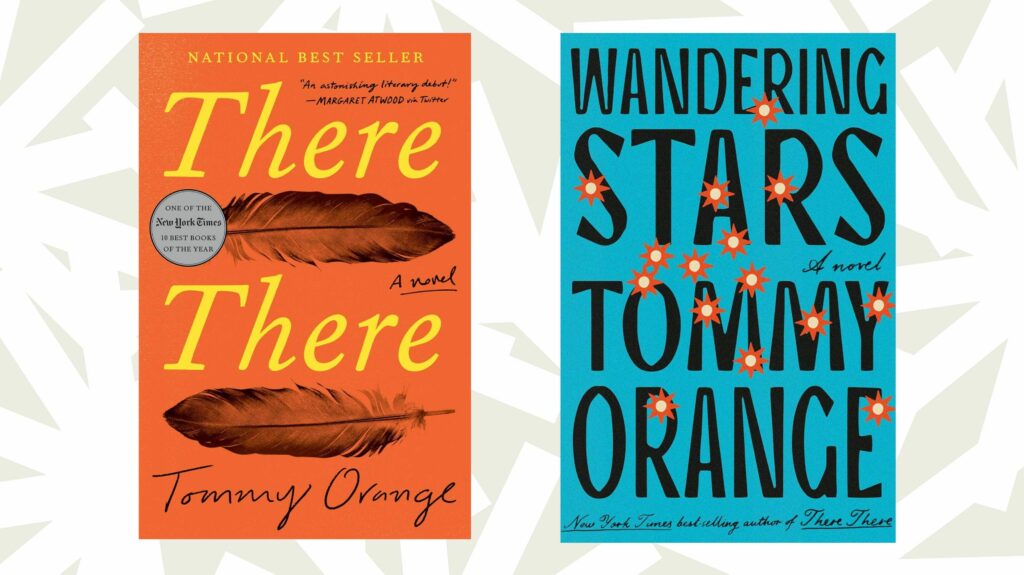Coachella, the once obscure Goldenvoice-produced music festival, has undergone a dramatic shift from its modest indie roots when it was founded in 1999. It has blossomed into an internationally recognized, sprawling, commercial enterprise. Now, with well-known artists, big-budget staging and a reputation as a “must experience event,” sponsors are eager to ride the coattails of Coachella’s aspirational image.

Still, while Coachella has gone commercial, it still carries an aura of specialness and offers sponsors an opportunity to embrace an “insider” image.
From a media consumption lens, Coachella fashion has overshadowed the music through A-list celebrity appearances, extravagant parties, lounges and installations. From mass-retailers H&M and Victoria’s Secret to luxe heritage labels like Moschino, “desert glam wear” is increasingly prevalent.
Revolve co-founder Michael Mente told Forbes, “Coachella has become the new Fashion Week for Millennials.” And who better to make this hyperbolic statement than Mente himself? Last spring, his ecommerce apparel company booked an entire hotel to host and sponsor more than 100 influencers. One criterion to even be considered for this exclusive club was a 6-figure following and an actively engaged audience. Included in the package were travel accommodations, free clothing and monetary compensation. Extending the program further, second tier outreach included dressing more than 400 micro-influencers, those with smaller, but still significant followings, to roam the festival.
In return, influencers were required to undergo two to six wardrobe changes each day and generate social media content that tied in the Revolve narrative. As long as the right hashtags and tags were in place, brand guidelines were loose: To convey “realness,” the company preferred influencers to stay true to their own unique voices.
The result? One billion dollars in total online sales for 2017 and 4.4 billion social media impressions from Coachella alone. Festival impressions were five times higher than H&M, Coachella’s main clothing sponsor, a much bigger company with both brick and mortar locations and a major online presence.
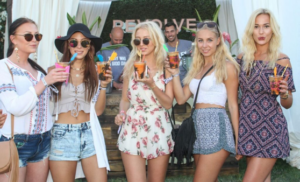
Revolve was back at Coachella this year, stepping it up a notch with a satellite festival of its own, “Revolve Festival.”
This invitation-only spectacle took place at the Merv Griffin estate, a luxurious, Moroccan-themed, multi-acre property, two miles from Coachella. The grounds were transformed into a picturesque social media haven with multiple focal points for those perfect Instagram shots. These included the carousel from Michael Jackson’s Neverland Ranch and a vintage automobile artfully overflowing with flowers.
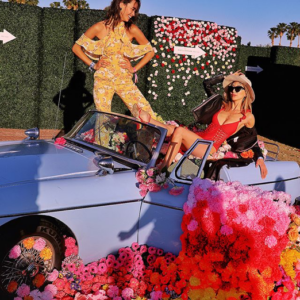
Curated guests—mainly influencers, models, celebrities and tastemakers, were wined and dined, lavished with swag, and treated to star studded performances by Snoop Dogg, Warren G, Chance The Rapper, Rick Ross and A$AP Rocky.
To maximize exposure, the company also partnered with several beverage brands, alcoholic and not, such as Heineken, Ciroc Vodka and Bai.
Festivalgoers hoping for the chance to attend the private event reportedly offered Revolve bribes of several thousands of dollars for an invitation. Revolve Fest was so successful that InStyle published a piece predicting that, “In a Few Years, This Festival Could Easily Become Bigger than Coachella.”
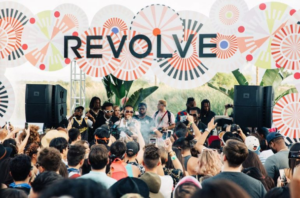
Revolve’s participation at Coachella serves as a modern guidebook for experiential outreach, starting with a clear understanding of its core target: Revolve customers are Millennials or Gen Z’s who are plugged into technology and crave insider status. They are fashion fearless, mixing high-end (Net-a-Porter) and low-end (Zara), and receptive to new ideas and experimentation.
Coachella is a near-perfect match for Revolve. The festival not only attracts the young, social media-obsessed trendsetters with spending power that the company wants to engage, but provides a platform for the brand to showcase its products to attendees and beyond, specifically, the millions it engages on social media via its well-curated team of influencers.
It is clearly working. For the second year in a row, the Revolve site posts its biggest revenues of the year for the two weeks of Coachella season, even outperforming its Cyber Monday sales.

Revolve’s Coachella influencer program offers several key lessons for youth-oriented brands.
First, there’s the perceived authenticity of the right influencers. Revolve may have chosen “beautiful people,” but for the most part, these were not red-carpet, smoke-and-mirror-Hollywood types. Rather, influencers were relatable and accessible. Revolve provided direction and encouraged, at least, a loose cohesion to the brand narrative, but allowed influencers to express themselves in their own authentically personal ways. While ceding a degree of control, Revolve reaped the benefits of spontaneity and honesty.
Revolve’s efforts also demonstrated the power of long-term collaboration in building trust. Prior to Coachella, many of the influencers had previously worked with the brand on other initiatives. Consistency and transparency, which helps the audience get to know influencers over time through social media, builds intimacy and credibility. We are in an era where marketers oftentimes confuse visibility with credibility. Brands able to balance both aspects will rise above the noise and build loyal consumers. Whether the message is authentic or contrived, in the words of George Burns, “Sincerity—if you can fake that, you’ve got it made.”
